Coffee is one of the main agricultural products of Vietnam and Dak Lak is considered the “capital” of coffee, with over 214,000 hectares, accounting for about 30% of the country’s area. Currently, the foundation of the coffee industry is still mainly based on small-scale farmers, the labor force is family members, farming based on experience. This force has the advantage of being industrious and attached to coffee trees, but has revealed many limitations in the new context.
Mr. Trinh Duc Minh, Chairman of Buon Ma Thuot Coffee Association, said: "We have a relatively abundant human resource with a foundation of general practical knowledge. However, the worrying reality is that the workforce in coffee gardens is getting older, having difficulty accessing science and technology; while the young generation with qualifications and dynamism is no longer interested in hard work and unstable income. This leads to a shortage of high-quality human resources not only in the production stage but also spreading throughout the entire value chain, creating a large gap that hinders development."
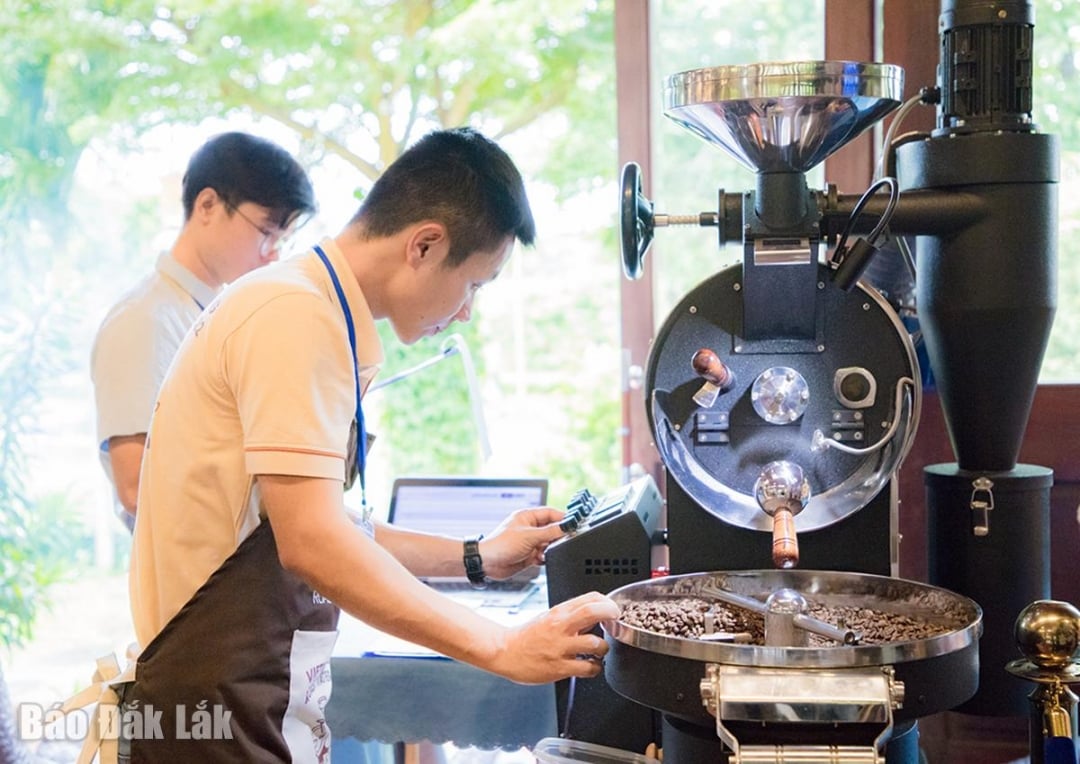 |
| Human resources for coffee roasting are seriously lacking. |
On the other hand, the training of human resources for the coffee industry is out of sync. Currently, sustainable farming processes are updated and trained for farmers very quickly, while post-harvest stages are neglected. For example, in the processing stage, the industry is seriously lacking experts and highly skilled workers who are capable of mastering deep processing techniques to create high-quality coffee, specialty coffee. The coffee industry lacks market developers and marketing experts who are capable of building brands, telling attractive stories about Vietnamese coffee beans to be more proactive about selling prices and not have to depend on intermediary channels...
"We are always in a state of having to look for human resources to serve the deep processing work. And when recruiting, the company also has to invest a lot of time and money to train them properly to meet the work requirements of the business" - Director of Minudo Farm-care LLC . |
According to Mr. Le Dinh Tu, Director of Minudo Farm-care Company Limited (Buon Ma Thuot Ward), deep processing is identified as the key to increasing the value of Vietnamese coffee beans, shifting from raw exports to branded products. However, the staff from modern machine operators, tasters, to product development staff... are all in short supply.
In reality, many cooperatives and businesses in the coffee industry are facing a shortage of trained human resources, especially those capable of applying digital technology to the value chain from management, production, processing to product consumption. To solve this problem, businesses want to strengthen connections with universities to find candidates who not only have high professional qualifications but also possess practical skills and creative thinking.
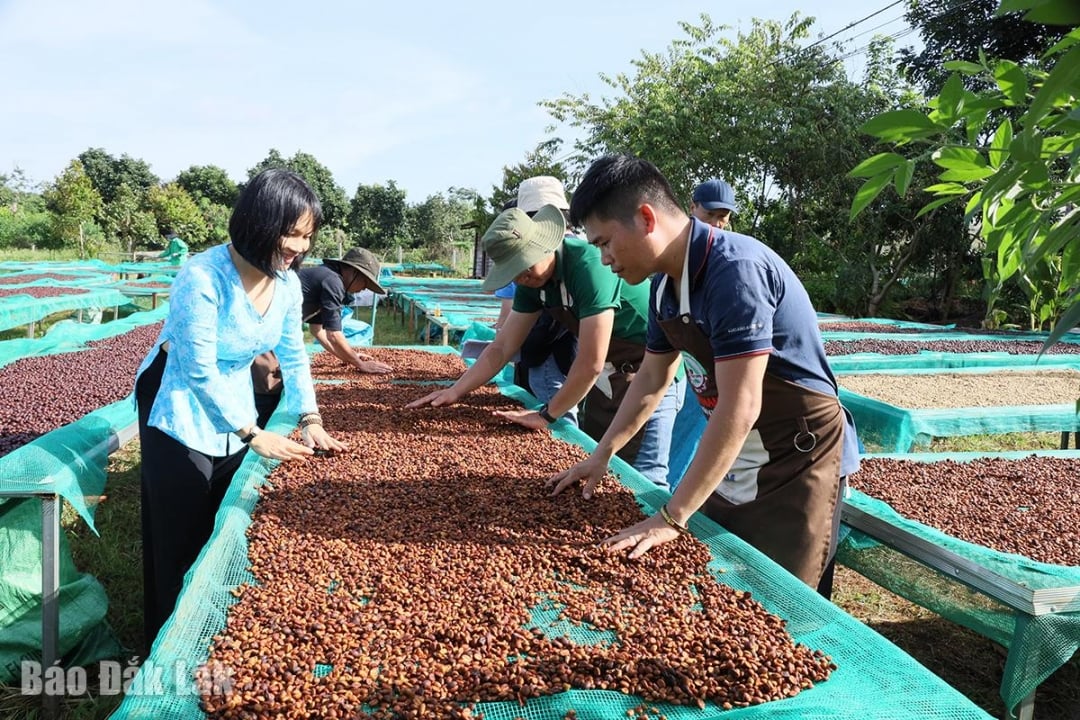 |
| Trainees attend a high-quality coffee processing training course organized by the Buon Ma Thuot Coffee Association. |
According to the Buon Ma Thuot Coffee Association, Dak Lak has advantages in raw material areas, but if it only focuses on exporting raw materials, the profit will not be high. Therefore, in the supply chain, in addition to good farmers, the coffee industry also needs a team of skilled workers and technicians. However, currently, specialized training courses on sensory evaluation, roasting, and processing are mainly conducted by private units, at very high costs. Therefore, the formation of centers and departments for specialized training on coffee in a practical way, closely linked to production practices is an urgent requirement.
Recently, the Provincial People's Committee issued a Plan for agricultural vocational training for rural workers in 2025, which is expected to be a fundamental solution to the human resource problem. The goal of the plan is to form a team of professional farmers; train high-quality human resources to serve smart agricultural production, ecological and organic agriculture and digital transformation in agriculture. In particular, the vocational training program for agricultural cooperative directors aims to provide skills in operating and managing cooperatives to develop effectively and sustainably... which is expected to be a concrete step to solve the problem of limitations in market connection.
Source: https://baodaklak.vn/kinh-te/202509/nganh-hang-ca-phe-khat-nguon-nhan-luc-chat-luong-cao-0071705/


![[Photo] Ho Chi Minh City Youth Take Action for a Cleaner Environment](https://vphoto.vietnam.vn/thumb/1200x675/vietnam/resource/IMAGE/2025/11/04/1762233574890_550816358-1108586934787014-6430522970717297480-n-1-jpg.webp)

![[Photo] Panorama of the Patriotic Emulation Congress of Nhan Dan Newspaper for the period 2025-2030](https://vphoto.vietnam.vn/thumb/1200x675/vietnam/resource/IMAGE/2025/11/04/1762252775462_ndo_br_dhthiduayeuncbaond-6125-jpg.webp)

![[Photo] The road connecting Dong Nai with Ho Chi Minh City is still unfinished after 5 years of construction.](https://vphoto.vietnam.vn/thumb/1200x675/vietnam/resource/IMAGE/2025/11/04/1762241675985_ndo_br_dji-20251104104418-0635-d-resize-1295-jpg.webp)
![[Photo] Ca Mau "struggling" to cope with the highest tide of the year, forecast to exceed alert level 3](https://vphoto.vietnam.vn/thumb/1200x675/vietnam/resource/IMAGE/2025/11/04/1762235371445_ndo_br_trieu-cuong-2-6486-jpg.webp)
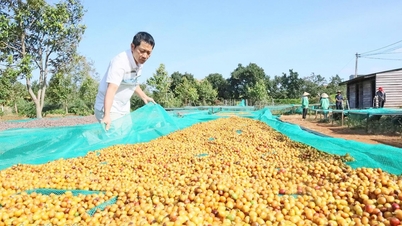










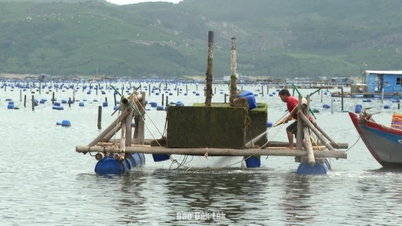
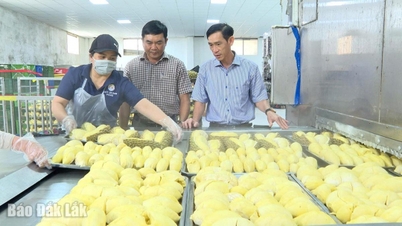


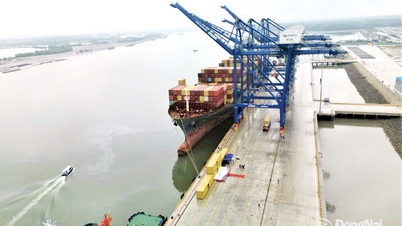


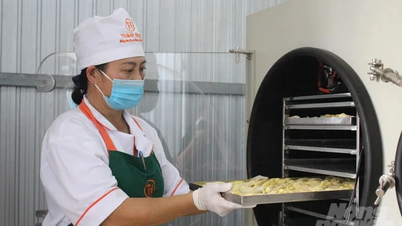






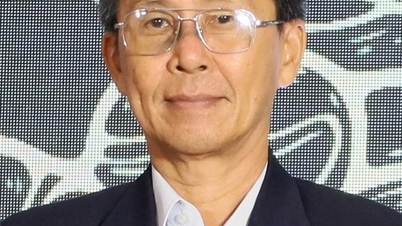
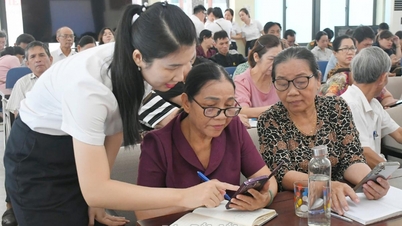

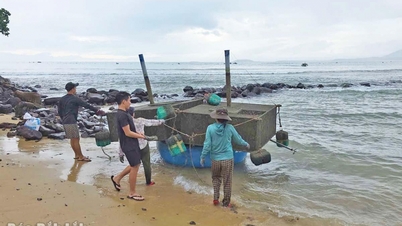
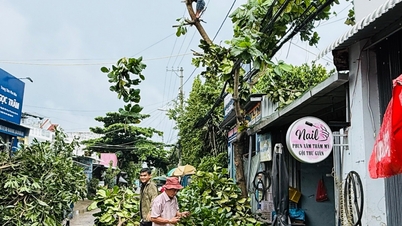
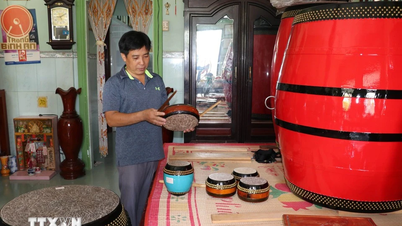

































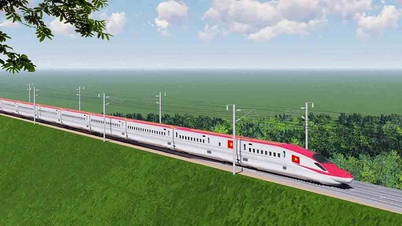
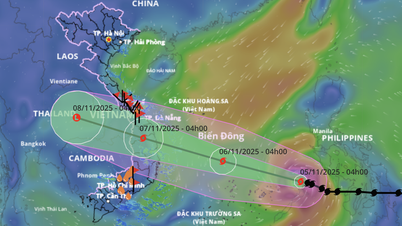
















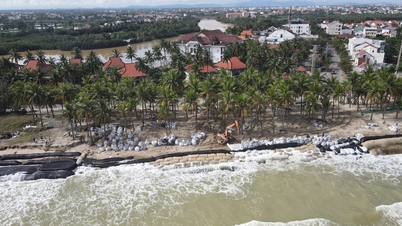




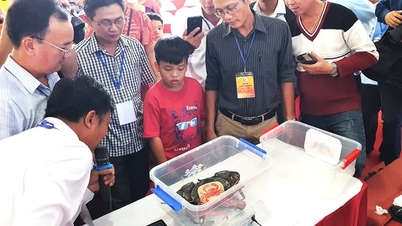
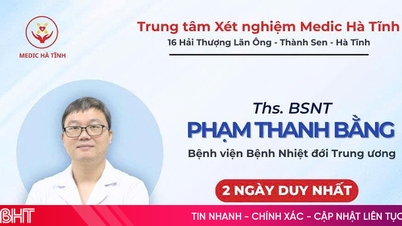












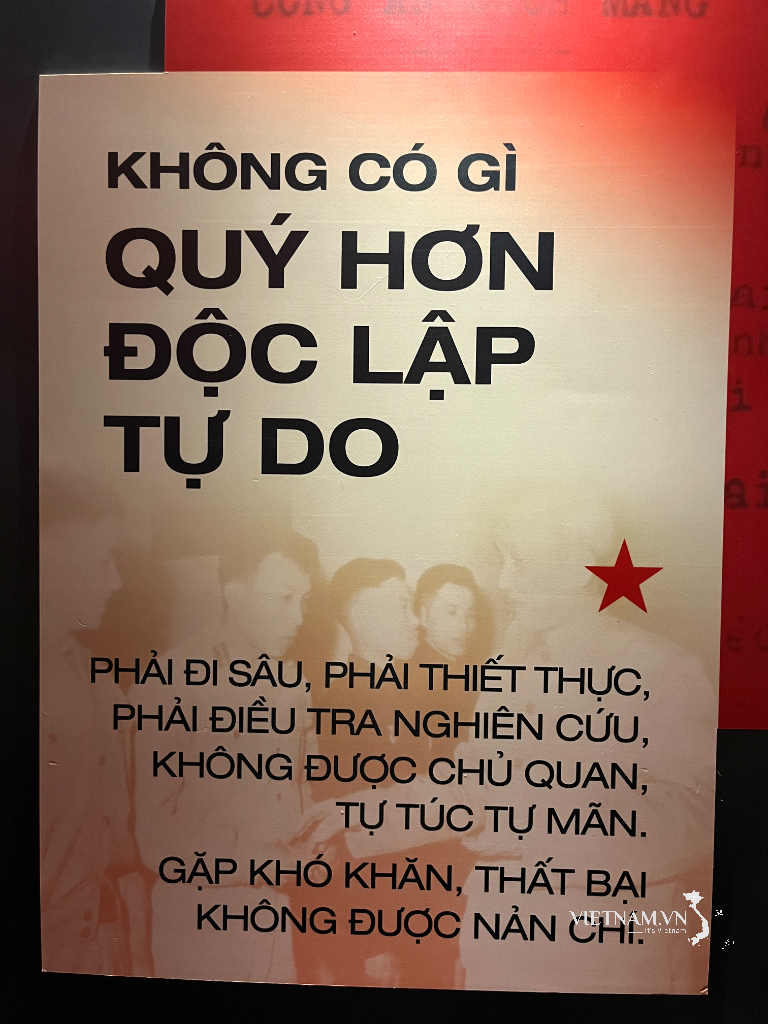
Comment (0)